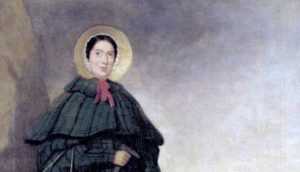Sayyida al Hurra was a 16th-century pirate queen. Though Islamic records of the time are strangely silent about her, she was a powerful force of the time and an equal ally of the famous pirate Barbarossa. Her real name is unknown; the title Sayyida al Hurra means “noble lady who is free and independent; the woman sovereign who bows to no superior authority.”
Sayyida was from the Kingdom of Granada, the last Muslim-ruled state in Spain at the end of the Reconquista (the centuries-long retaking of the Iberian peninsula from the Moors). Her family fled to Morroco after the fall of Granada in 1492.
The city of Tétouan in northern Morroco which Sayyida ruled was first settled around the 3rd century, but had been destroyed earlier in the 15th century by the Castilians. Sayyida, along with her first husband, rebuilt the city after the Reconquista refugees received permission from the sultan of Morroco to settle and fortify the area. Following the death of her husband in 1515, Sayyida became the last person in Islamic history to legitimately hold the title of al Hurra (Queen).
Perhaps because of the memory of being forced to flee her home in childhood, Sayyida, like many other Muslims in the area, turned to piracy against her Christian enemy. She reached out to Barbarossa of Algiers, who controlled the eastern Mediterranean Sea while she controlled the west, and assembled her own fleet. She wreaked havoc on Spanish and Portuguese shipping lines, and was the undisputed leader of the pirates in the region.
Most information on Sayyida al Hurra comes from Spanish and Portuguese records. They were in close contact with her, negotiating the return of prisoners and playing a key role in the “diplomatic game”.
Sayyida remarried later to the king of Morocco. To show that she had no intention of giving up her power and position, she refused to leave Tétouan for the marriage, forcing the king to come to her. This is the only time in Moroccan history that a king married away from the capital.
After ruling for 30 years, Sayyida was deposed by her son-in-law in 1542. She was stripped of property and power and her ultimate fate is unknown.
See Also: Grace Dalrymple Elliott, Courtesan and Spy
Recommended Reading


Keri is a blogger and digital marketing professional who founded Amazing Women In History in 2011.





You could also do an article on Ching Shih who is basically the Chinese equivalent
I was in Barbados enjoying a well deserved holiday when I bumped into a very old book written about
this lady.I am from GUYANA : having a history of occupation of the POURTUGUESE
what a wonderful lady
Errol
I found this article very interesting. The fact that she was considered the most important female figure during the Islamic West society. Her real name was Lalla Aicha bint Ali ibn Rashid al-Alami and became the last person in Islamic history to legitimately hold the title Queen following the death of her husband, who ruled Tétouan. My question is during this era, was Islamic society very patriarchal ?And in the second paragraph, the first two lines need rewording , its a bit confusing.